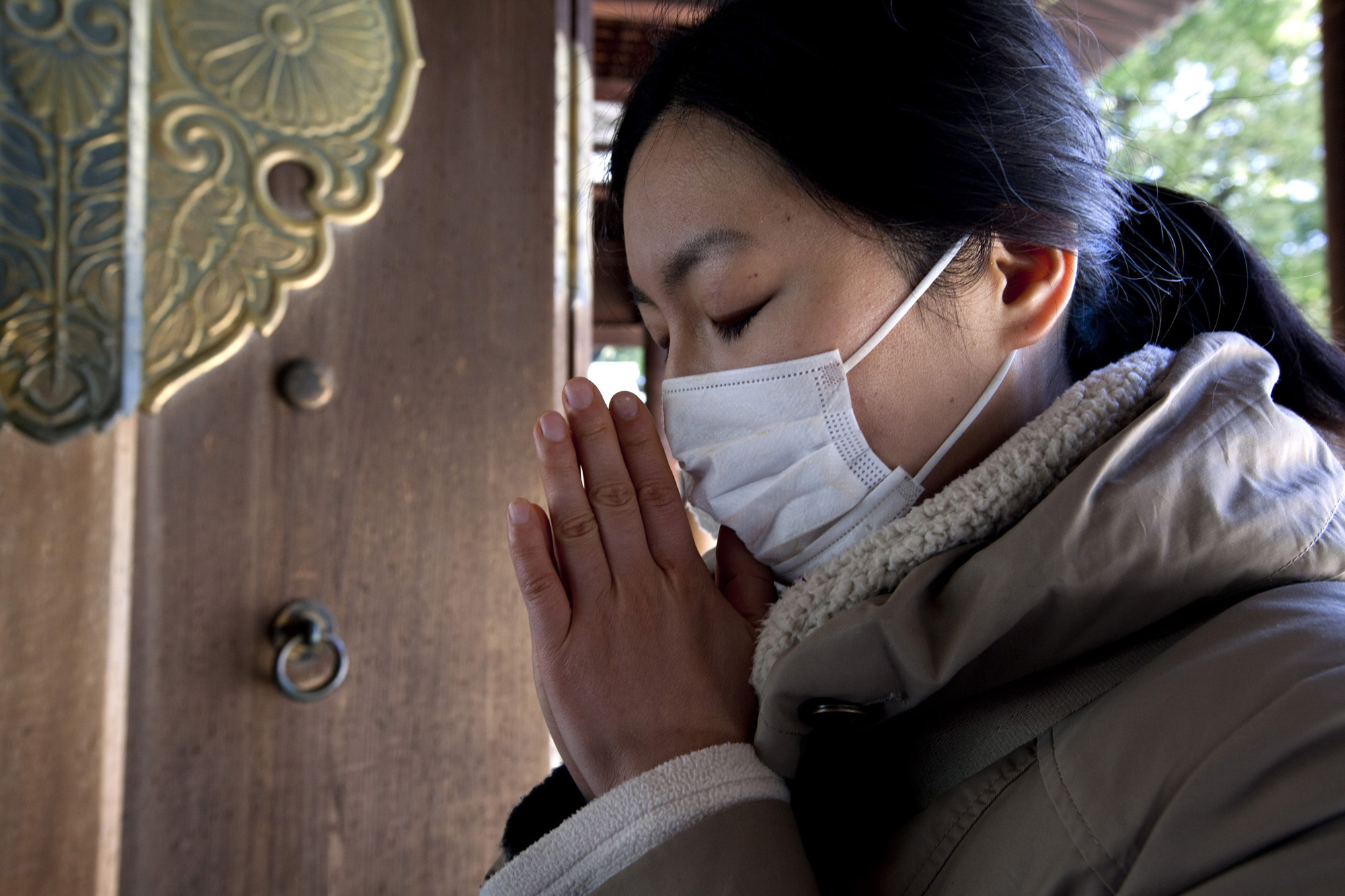
EDITOR’S NOTE: All International Mission Board personnel in east Japan began relocating southwest of Tokyo March 18 in response to deteriorating conditions following the earthquake, tsunami and nuclear power crisis,. They will be given temporary assignments south of Nagoya. The relocation is expected to be complete by Saturday, March 19. Navy Admiral Robert Willard had announced Thursday that the military has developed contingency plans to evacuate 87,000 Americans — including Defense Department personnel — from Tokyo and the surrounding areas.
TOKYO (BP)–Thousands of the little wooden prayer tablets rattle softly in the cold, spring breeze, a symphony of soft clattering that drifts out from the Shinto shrine.
Images and characters burned on one side of the tablet symbolize hope. On the other side, carefully handwritten prayers and wishes are written to the deities of the Meiji Jingu Shrine.
Not surprisingly, the “prayer wall” focuses on Japan’s triple disaster — a 9.0-magnitude earthquake, a tsunami and nuclear crisis.
“My sister is missing. Please bring her back.”
“Prayers for the victims.”
“These disasters will not destroy us. Be strong.”
One young Japanese woman spends 15 minutes writing her request in perfect characters. She stuffs her prayer, “… protect my family from nuclear radiation …,” in a waist-high box. Don’t try to estimate the number of these requests — people just keep stuffing whether there is room or not.
“I do not normally come here to pray,” the young woman explains, “but given the disasters, I am not sure what else to do.”
Proud of their secular society, most Japanese are not religious. But in a time of crisis, International Mission Board missionary Gary Fujino says they tend to fall back on an old Japanese expression, “The god that you depend on in times of crisis.”
“What that means is when things are bad, you will go to the temple and shrine because nothing you’ve tried thus far worked,” Fujino explains. He notes that, once the crisis is over, no one goes back to the temple or shrine.
Thousands of prayer tablets hung in one-day testify that the crisis in Japan continues to grow and people are trying to find ways to cope. The Fukushima Daiichi nuclear site has been rated a 5 on a 7-point international scale for atomic incidents, just two levels lower than the Ukraine’s 1986 Chernobyl disaster. The head of the UN’s nuclear watchdog warns that stabilizing the plant is a race against time. In Japan’s disaster-ravaged northeast, 6,405 people are confirmed dead and about 10,200 are listed missing.
While most Westerners often are preoccupied with causes of disaster — the questions of why God would allow an earthquake, for example — Eastern traditions like Buddhism and Shinto focus on behavior in reaction to tragedy. It is very important in Japanese life to react in a positive way, to be persistent and to clean up in the face of adversity.
Fujino says it’s always been like this. His elderly Japanese neighbor assures him this is just like World War II — a time when the nation pulled together and persevered. The neighbor has no doubts that Japan will rebuild and make it on their own.
“They really believe that in themselves they have what they need, which makes it very difficult to share the Gospel” Fujino says. “What we need is for people to be shaken and realize that you need something outside of yourself — God.”
The 1995 Kobe earthquake did just that for Yoko Dorsey. She lost everything. In Japan, she explains, people work for material things. They are defined by what they own. So when it is lost, you lose everything — worth, pride and value.
The 60-year-old member of Tokyo Baptist Church says she thought at the time she could depend on herself, just as many Japanese feel today.
“I learned in the Kobe earthquake that I needed God. I learned that I don’t need material things. My heart opened up,” she says. “I think God saved me back then because He wants to use me now.”
Dorsey took in a single mother and her daughter whose other family members remain missing. As people evacuate from the disaster zone to Tokyo, she plans to bring even more to live with her.
She explains that the Japanese government will take care of things and rebuild houses in a few months, but she can do something even bigger — introduce people to the God who can rebuild their lives.
“I have a really strong God,” she says. “I want those people in the disaster to know my God’s strength and power.”
Dorsey cannot make it to the disaster zone yet because of radiation fears, not to mention the lack of government permits, but she’s doing what she can in Tokyo. From her church just a few miles from the Shinto shrine, she prays for her country.
Dorsey’s prayers are different than those hanging in the shrine. Hers are not “wishes” or “hopes.” She knows her God personally and knows He will provide.
–30–
Susie Rain is an IMB writer/editor living in Asia. The International Mission Board has established a relief fund for the Japan earthquake. Donations may be sent to: Office of Finance, International Mission Board, 3806 Monument Ave., Richmond, VA 23230. In the memo line write “Japan Response Fund.” Or you can give online by going to imb.org and clicking on the “Japan response” button. For further information, call the IMB toll-free at 1-800-999-3113.
















